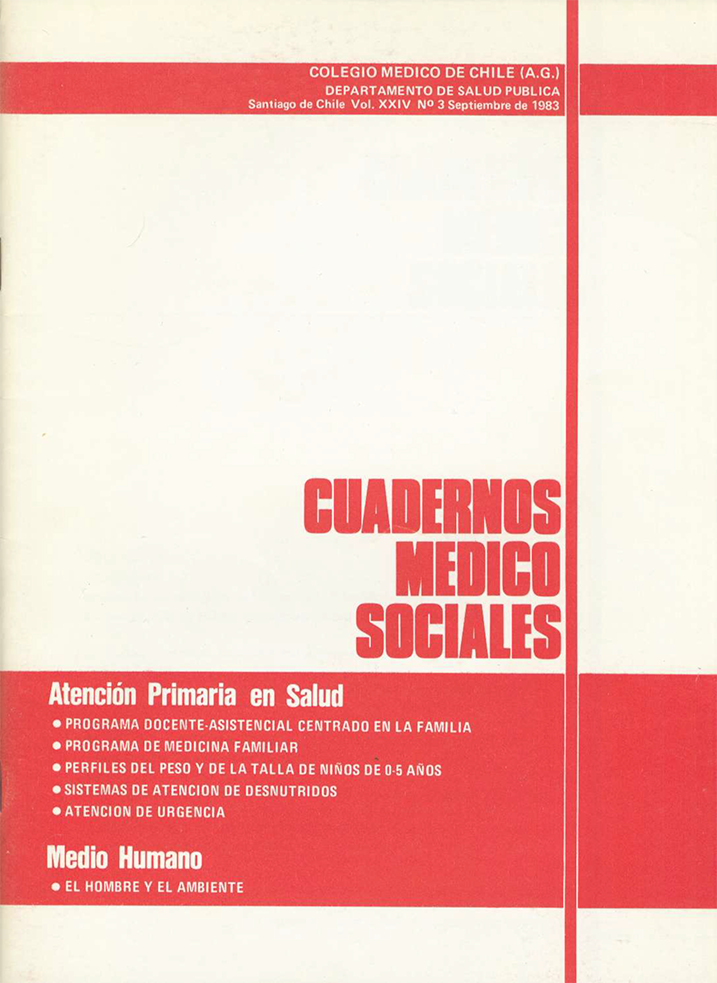Metodología de análisis de costo-efecto social, aplicada a Sistemas de Atención de Desnutridos
Keywords:
Desnutrición Infantil, ChileAbstract
The methodology of the social cost-effect was applied to two system of care given to undernourished. An analysis is performed on the evolution of weights in relation to the height in 745 children incorporated to an Ambulatory Program, and of other 420 attendants to Infant Gardens appertaining to the State. As pattern, the percentile 50 of the NCHS/OMS has been used. The probability of recovery in both programs is relatively feeble and is in reverse relation with the degree of nutritive deficit. The attention is addressed to the probability of rising the initial deficit, which could indicate a certain proportion of inefficacy of Programs, or otherwise a failure of the treatment, the causes of which must be studied. The median of recovery term is lower at the Infant Garden, but social cost is higher. The social cost-effect of recovery determines comparative advanteges of the Ambulatory Program in relation to that of Infant Gardens, with the exception of partial recovery of the moderate undernourished under one year of age. The results enable us to point the orientation of beneficiaries toward the alternative of more efficacy, according to the diagnosis and age of the child. The proposed methodology represents a contribution to the valuation of medico-social actions, among which the intervention of nutrition is an important part which, in spite of not being remunerated, must be measured through its efficiency and efficacy in the scheme of health in order to establish the assignment of financial recourse to the sector.
Downloads
Downloads
Published
How to Cite
Issue
Section
License

This work is licensed under a Creative Commons Attribution-NonCommercial-ShareAlike 4.0 International License.


